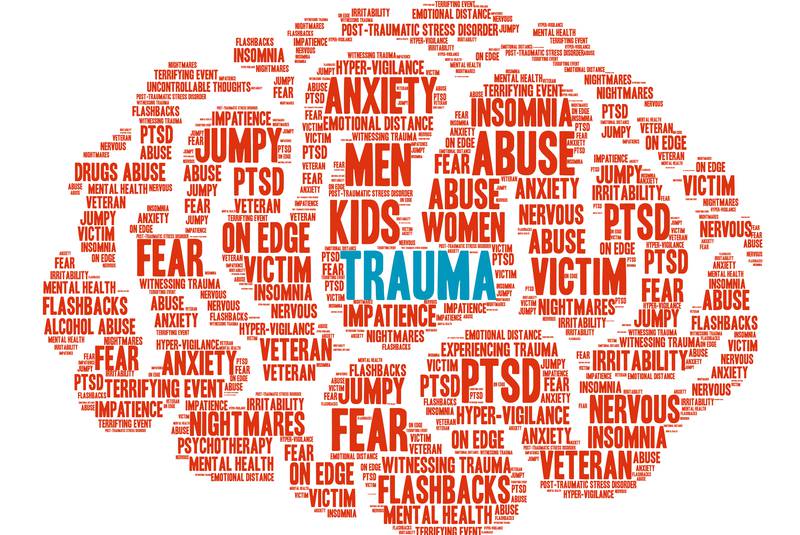Complex Post-Traumatic Stress Disorder and Learned Helplessness
Today, I want to focus on trauma. In particular a disorder called complex PTSD. This disorder hasn't been included in the Diagnostic and Statistical Manual of Mental Disorders as of yet, but is recognised by the U.S. Department of Veterans Affairs and other agencies. C-PTSD is distinct from strict PTSD in that it deals with intense prolonged, repetitive trauma of the course over years, decades, or a lifetime.
Sufferers of C-PTSD include a wide range of people, including, but not limited to, victims of repetitive sexual abuse, child abuse in many forms, victims of unrelenting school bullying and brutalization, victims of slavery or human trafficking, Prisoners of War, people living in Warzones, Veterans exposed to multiple highly traumatic events over an extended period of time, and many other situations exposing someone to intensed, prolonged trauma over the course of a long period of time.
A major defining trait of C-PTSD includes feelings of entrapment and captivity (you feel like you can't escape from the trauma or abuser, or you actually can't escape). This feeling of bondage causes a wide range of mental problems, from a constant sense of terror, learned helplessness, a feeling of worthlessness, disassociation and a breakdown of your identity or sense of self.
C-PTSD can activate, or mimic, other disorders, such as bipolar disorder. An article from a website called psych central discussing C-PTSD references this circumstance, and I am going to quote and cite it here:
"What differentiates C-PTSD from PTSD, apart from its origin, is that is that it involves a much more fundamental disturbance in the individual’s personality. These disturbances produce symptoms that are similar to those produced in other mental health conditions, most notably bipolar disorder." Franco, F (2018)
Complex trauma over a long period of time has severe disruptions in personality and mental and social development, especially if the trauma originated in childhood. The disruption of development robs an individual of a sense of normalcy, and inhibits or exascerbates emotions like anger or sadness to an abnormal and often unmanagable or inconsistent degree.
Another core component of C-PTSD is a strong desire for revenge and bitterness. Resentment and vengeful thoughts are common in victims of slavery, sexual abuse, and captivity/unescapable situations.
Naturally so, since prolonged abuse creates bitterness and sows the seeds of hate in its victims, which may serve to potentially create monsters of the victims who, in their bitterness and anger, go on to victimize others if they survive their own abuse.
C-PTSD is a troubling disorder, but it is a product of a corrupt, lost, and wicked world. A world where abuse and trauma are commonplace, and unfortunately becoming more normalized as society and the world breaks down politically and feelings of oppression are intensifying, even within the United States.
Slavery is making a resurgence in the form of human trafficking, and income inequality has people feeling trapped and without an opportunity to move up.
Covid-19 has intensified the sentiment of oppression and has led an already disenchanted group of people to feel that their disenchantment is validated and that this place is not what it claims to be.
Trauma, unfortunately, is part of life, but much trauma, and especially prolonged trauma, can be prevented or stopped before it gets worse if proper intervention is done. Just because trauma and complex trauma are components of this broken world doesn't mean we don't have the capacity to mitigate it. In fact, we have an obligation and a moral responsibility to at least attempt to do so in order to heal a broken world and broken people, otherwise an already dark world will only continue to get darker.
“If we could somehow end child abuse and neglect, the eight hundred pages of DSM (and the need for the easier explanations such as DSM-IV Made Easy: The Clinician’s Guide to Diagnosis) would be shrunk to a pamphlet in two generations.” – John Briere




Comments
Post a Comment